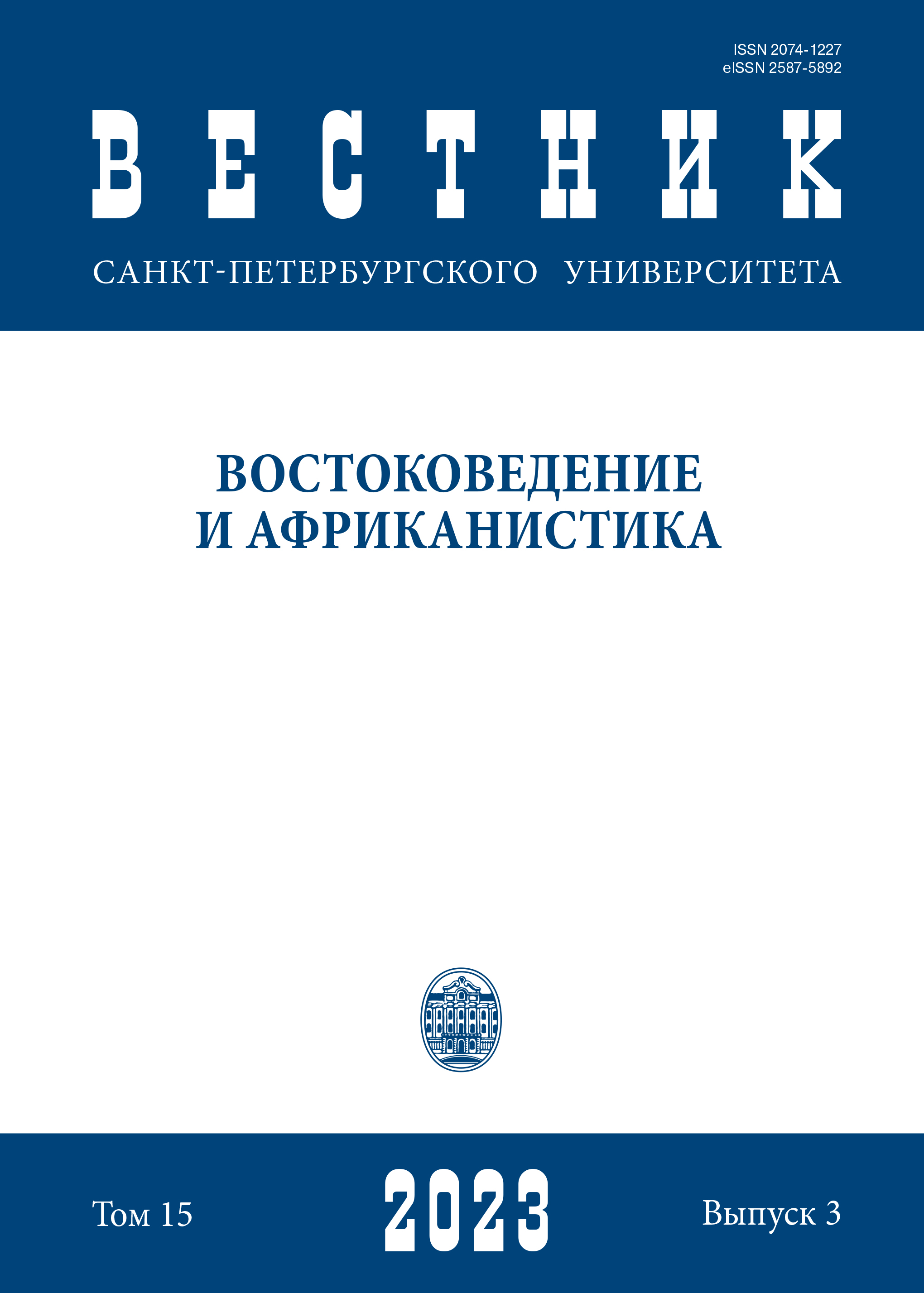Пять путешествий Иноуэ Ясуси в северо-западный Китай (1977–1980 гг.): «взгляд в прошлое» на древние города Шелкового пути и культурный трансфер
DOI:
https://doi.org/10.21638/spbu13.2023.306Аннотация
Двусторонние японо-китайские культурные связи в конце 1970-х — начале 1980-х гг. получили мощный импульс к развитию на фоне укрепления межгосударственных отношений в 1970-х гг. В это время начался поворот китайской внешней политики в сторону наращивания связей со странами рыночной экономики. Традиционно культурный трансфер из Китая в Японию занимал центральное место в контактах двух государств, однако в ХХ столетии политические отношения и культурный диалог пережили череду драматических изменений; после окончания Второй мировой войны, несмотря на идеологические противоречия, культурные контакты между КНР и Японией
устойчиво расширялись. Цель данной статьи состоит в изучении путешествий известного японского прозаика, лауреата многочисленных премий Иноуэ Ясуси в северо-западный Китай в 1977–1980 гг. в качестве попытки со стороны Японии расширить свое участие в азиатских делах и рассмотреть в деталях многонародный и многокультурный Китай. Основным источником анализа и реконструкции маршрута путешествия выступают опубликованные в 1983 г. «Мои дневники путешествия по Западному краю» (Ватаси-но сэйики кико:) в 2 томах. В данном исследовании обобщаются сведения о путешествиях Иноуэ Ясуси в китайскую часть Туркестана, уточняется постепенное углубление культурного диалога между Японией и КНР и рассматриваются образы древних городов Великого шелкового пути, которые создал известный своей лояльностью к Китаю писатель посредством ностальгического «взгляда в прошлое» с тем, чтобы объяснить культурное единство и специфику региона в составе Китая.
Ключевые слова:
японо-китайские культурные связи, холодная война, Западный край, Синьцзян, Дуньхуан, путевая проза, японская литература, Иноуэ Ясуси
Скачивания
Библиографические ссылки
Загрузки
Опубликован
Как цитировать
Выпуск
Раздел
Лицензия
Статьи журнала «Вестник Санкт-Петербургского университета. Востоковедение и африканистика» находятся в открытом доступе и распространяются в соответствии с условиями Лицензионного Договора с Санкт-Петербургским государственным университетом, который бесплатно предоставляет авторам неограниченное распространение и самостоятельное архивирование.





